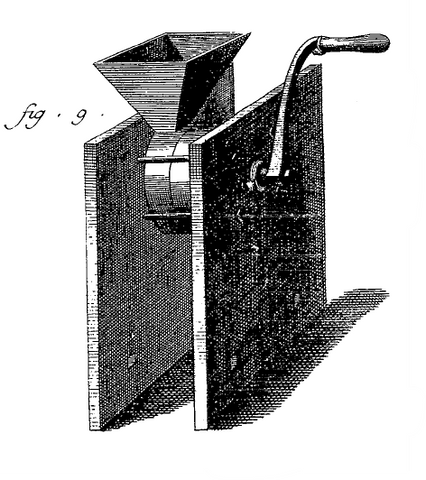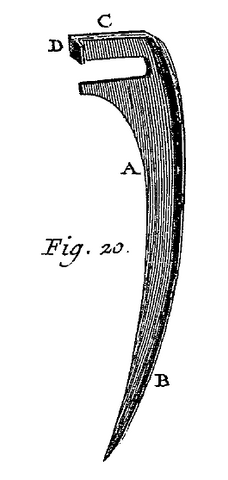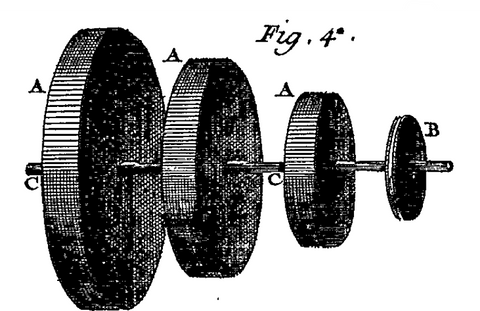Which coffee grinder should I choose?
Sometimes called a grinder, it is simply the instrument that will transform your coffee from beans to powder (or grind), more or less coarse. If you ask a barista in a specialized establishment, he will most likely tell you that the choice of grinder is more important than the rest to obtain a good coffee (and even more so a specialty coffee ). And he will be right to a certain extent.
If you're a coffee lover and don't have a grinder, you're missing out on many of the aromas that will have escaped from the coffee since it was ground. The good news is that there is an extremely wide selection of coffee grinders. The bad news is that grinders are often quite expensive. In this article, we will only discuss grinders separate from the coffee extraction; automatic machines with integrated grinders are not considered, even though they offer an interesting solution in terms of practicality and space.
Espresso grinder vs. gentle methods
You may already know this, but the grind suitable for filter coffee must be much coarser than for espresso.
If you use a filter grind in an espresso machine, the hot water will pass through the cake too quickly, carrying very few aromatic compounds. You'll end up with hot water vaguely flavored with coffee, which is probably not your goal. One way to overcome this phenomenon is to use a pressurized filter. The resistance normally created by the fine grind in the filter holder will be replaced or at least supplemented by that of the pressurized filter, which will only have a small hole on its bottom, preventing the water from flowing too quickly. This is a stopgap solution that will undoubtedly improve your cup, but if you're looking for the perfect espresso, you'll have to experiment with simple filters, as the flow rate will be an excellent indicator of the accuracy of your settings (grind, quantity, etc.).
On the contrary, if you use an espresso grind in filter coffee, the water risks stagnating in the cake, flowing very slowly and carrying away undesirable aromatic compounds (a lot of bitterness, both in your cup and in your cooking).
So, according to some home coffee grinder manufacturers, it's difficult to create a grinder that's suitable for both filter coffee and espresso. You'll have to make a choice. We understand that this can be a heartbreak for fans of both, so we've got something to satisfy you in this article, and you'll avoid cluttering your kitchen with two grinders.
Manual vs. Electric Mill

Typically, the first factor leading to this choice is kitchen space. It's easy to understand that a new electrical appliance on the countertop can be a hindrance. However, electric grinders are generally more efficient, as they grind more consistently and precisely depending on the model. They also have a clear advantage when it comes to preparing 8 double espressos for friends.
Some electric mills we recommend:
Less than €200: Baratza Encore, suitable for filter coffee and pressurized filter espresso
Less than €300: Fellow O Brew, suitable for filter coffee, stylish and efficient
Less than €400: Eureka Mignon Manuale, suitable for espresso, precise and efficient
Over €500: Niche Zero, suitable for filter and espresso, stylish and efficient, very little coffee retention
If you're a low-tech lover, live in an 18m² apartment with a sloping ceiling, or want to drink good coffee on the go, manual coffee grinders may be more suitable. It obviously requires a bit of elbow grease, but it will make you appreciate the results even more. It's often said that manual grinders can't be used for espresso, but there are a few exceptions when you move upmarket.
Some hand mills we recommend:
Less than 100€: Timemore C2, suitable for filters, quality materials and good durability
Less than €150: Timemore Chestnut, suitable for filter and espresso
Less than €220: Kinu M47 Phoenix, suitable for filter and espresso, robust and precise
Less than €250: Comandante C40, suitable for filter and espresso, the benchmark
Blade vs. Burr Mill

This is an important element to check before purchasing a grinder, whether electric or manual: blades or burrs. Because if it's a blade grinder, you risk cutting your coffee beans rather than grinding them, and getting a very inconsistent coffee: the espresso may flow completely erratically, and the filter may be seriously lacking in body. So relegate your grandmother's superb Peugeot coffee grinder to the kitchen decoration, where it will perform magnificently.

When it comes to burr mills, you'll have the choice between conical or flat burrs, ceramic or steel, but this shouldn't make a huge difference for home use. When choosing your mill, carefully consider the specifications for your specific use, and perhaps even customer reviews.
Before worrying about the grinder, it is important to start at the beginning, knowing what the need is and what the use will be. For this, we invite you to consult our more general article on choosing your coffee machine .

